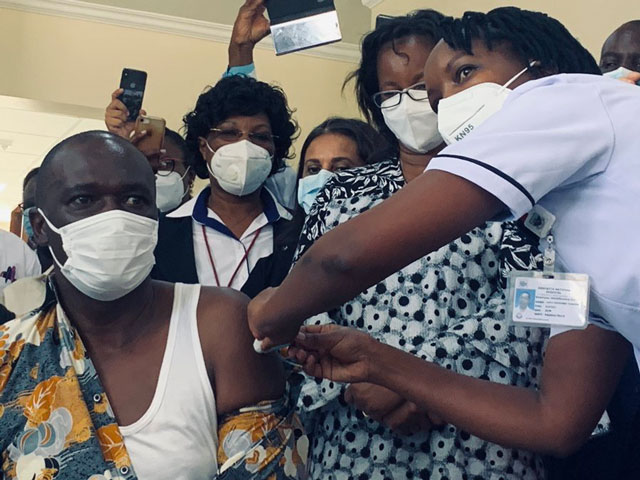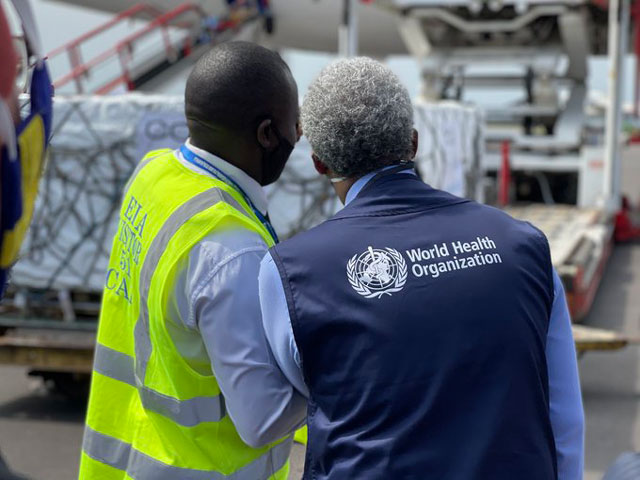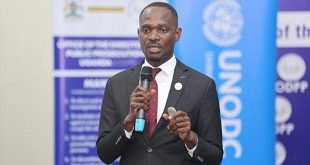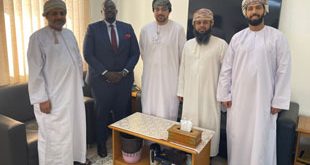
Taking the COVID-19 jab: What the people are saying
To test the level of psychological preparedness two days after the Minister of Health, Dr. Jane Ruth Aceng announced the start of the government’s COVID-19 vaccination programme; I randomly called up people within my circle. I began with my parents.
“The government has finally brought the vaccine for COVID-19 and vaccination begins on March 10. Will you go for vaccination?” I asked my 60 year old mother.
“I don’t think I will take the injection,” she said, “If I must, I will have to wait and see how the first people react to it.” She went ahead and gave me her reasons.
“They say this virus was created by them (White people). Now we hear it is the same people with the vaccine,” she said, “People are so scared of the after-effects of this vaccine. I doubt that people in the rural areas will easily accept this vaccine.”
“Since the Coronavirus came here (Uganda), I have tried to protect myself as much as possible. I don’t think I need to rush into getting vaccinated. I might reconsider if I get a satisfactory explanation but, for now, I will not rush into getting vaccinated,” explained my 60 year old father, who works with an agricultural NGO with several outreach programmes for farmers.
He says he is not sure about the vaccine’s safety. “The news I have been getting from Western countries which have been vaccinating their people is not encouraging especially on the side effects (of the vaccine),” he said.
Moses Okemer, a boda-boda rider says he will only take it after observing his close friends’ reaction to it. I want to see the side effects, he says.
“Of course I know every drug has a side effect but I am concerned that this vaccine took such a short time to be developed,” he told The Independent on March 03.
Okemer says he will not influence his 60-year old mother to take the jab because she is old enough to make her decision but if she ever seeks his advice before taking the COVID-19 jab, he will tell her to wait.
A youthful man in his early 30s preferred to talk on condition of anonymity. He says he works in an environment where ordinary people interact everyday without observing SOPs but he has not seen anyone suffer from COVID-19.
“I live in communities where people do not respect SOPs and I even see those who try to wear masks exchange the masks but I have not seen them fall sick.”
With that local experience, he told The Independent that he will not be taking the vaccine anytime soon. “I am also not sure about its (vaccine) side effects.”

Simon Atagwirweho, a laboratory biotechnologist says he will also not allow to be vaccinated. “Vaccination, in principle, is a good thing especially if the vaccine goes through a long process of development.”
“But these COVID-19 vaccines have taken a short time to be developed. I suspect these vaccines could have long term side effects. If the COVID-19 vaccine went through the usual process, then it would have been easy for me to take the jab. They have hurried the process and in so doing; we are yet to find out the long term effects of this vaccine,” he told The Independent on March 04.
Prossy Mugeni also has doubts about the process the vaccine has gone through. “It was so fast. I doubt its efficacy,” she said.
“Usually vaccine trials go through elaborate processes; they try them first on rats, then animals that have similar characteristics with human beings; then they proceed to human volunteers before the vaccine goes onto the market.”
“This process is usually the best way of proving that this vaccine is not dangerous to human beings,” she told The Independent on March 04.
But Seridai Kizza Katongole, 70, told The Independent on March 03 that he understands the world is in a desperate situation to get rid of COVID-19 and he also has his doubts about the vaccine development process but he will take the vaccine if given chance.
“I am 70 years old; I have children and many grand children so I would not mind being used as an experiment, as long as it is not dangerous. At my age, I am not scared to take it. But I will not allow my children to take the vaccine.”
Janet Babirye, a young nurse who works at one of the pharmacies in suburban Kampala told The Independent that she will gladly take the jab because she trusts the Ministry of Health and the World Health Organization’s processes they have put in place to ensure the vaccine is not harmful to people around the world.
“I have seen people dying of Corona and I know it is real. You can be re-infected but at least you will not suffer as much as the person who has never been vaccinated. It can attack me again but my body will be able to fight back compared to someone who has never been vaccinated.”
How India will help Uganda secure #COVID19 vaccine https://t.co/19g0jWoksA#COVAX #GAVI #MODI
FILE PHOTO pic.twitter.com/S6gy42vQbH
— The Independent (@UGIndependent) November 30, 2020
Charles Odongtho, a current affairs show host on the national broadcaster, UBC, who battled against COVID-19 in December last year told The Independent on March 04 that he will be taking the vaccine.
“I interact a lot with my old parents and the fact that I fought off the virus three months ago does not mean that I will not get re-infected.”
“My mother is 70 and my father is 78 and I often try to limit my interactions (with them) because of the nature of my job. You never know when you could get infected.”
“Naturally human beings are suspicious,” he says in response to the fact that some Ugandans do not trust the vaccine.
“I trust the scientists and I believe they don’t have any sinister motive against Africans or the human race. Vaccine manufacturers want to make money and it is not in their interest to jeopardise their multi-billion dollar businesses.”
During the press briefing called to tell Ugandans about the imminent vaccination programme, I raise issues on why the government is asking everyone who intends to take the COVID-19 vaccine to sign the consent form.
I also ask whether President Yoweri Museveni will emulate his counterparts like President Joe Biden of the United States and Cyril Ramaphosa of South Africa who have publicly taken the jab to boost trust amongst their citizens.
💉 Myth 2: The vaccines could mess with our DNA
>> The RNA in some of the vaccines never get anywhere near our DNA, plus RNA disintegrates in 72 hours.— Priya Joi (@priya4876) January 22, 2021
💉 Myth 3: Vaccines are suspect because pharma makes a profit
>> We live in a capitalist world where everyone makes a profit. The car industry rakes in millions from selling cars but we generally assume the safety checks have been done. Regulation is key here.— Priya Joi (@priya4876) January 22, 2021
💉 Myth 5: The vaccine could give you Covid
>> There’s no live virus in the vaccines that could replicate. We only send part of the virus into the body – the bit that can cause infection is missing.— Priya Joi (@priya4876) January 22, 2021
💉 Myth 6: The vaccine is full of chemicals
>> Everything has chemicals, including our bodies which are full of sodium chloride (salt) and dihydrogen monoxide (water). If you’ve ever taken paracetamol you’ve taken N-acetyl-para-aminophenol. A scary name doesn’t mean danger.— Priya Joi (@priya4876) January 22, 2021
Dr. Yonas Tegegn Woldemariam, the WHO Country Representative in Uganda says there is a reason behind seeking consent. He says COVID-19 is a new pandemic and although the vaccine is safe, the manufacturers have said they want protection since they have not had enough time to look into the long term effects of the vaccine.
“Just like any vaccine, there are minimum risks but the manufacturers asked all governments, not only developing countries, to sign indemnity agreements. They don’t want that risk and they have transferred that risk to national governments.”
“Looking at the data of safety so far, we can assure you that the vaccine is safe. I will be the first to take this vaccine. This is a safe vaccine. I can’t give any other guarantee, other than my life.”
Dr Aceng, the Minister of Health says the decision of whether President Museveni takes the vaccine or not lies with him.
“The president has single handedly come out and championed the fight against the Coronavirus. He has done everything to ensure that the vaccine comes into Uganda and on time to ensure that the Ugandan population is protected.
But the decision on whether he takes the vaccine or not lies with him,” she told The Independent. “But just like the WHO Country Representative said, I will be the first to take the vaccine. So if you are scared, you will see from some of us who (will) have been vaccinated.”
***********
✳This story was published with support from Ultimate Media Consult’s multi-media journalism and digital skills training programme
 The Independent Uganda: You get the Truth we Pay the Price
The Independent Uganda: You get the Truth we Pay the Price


